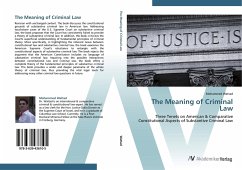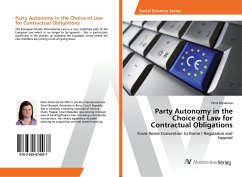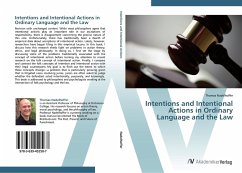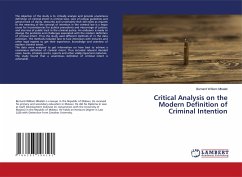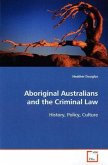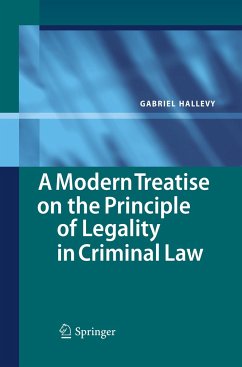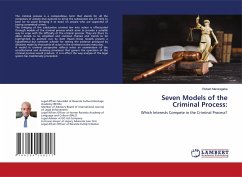Revision with unchanged content. The book discusses the constitutional grounds of substantive criminal law in American law. Addressing touchstone cases of the U.S. Supreme Court on substantive criminal law, the book proposes that the Court has consistently failed to provide a theory of substantive criminal law. In addition, the book criticizes the Court's superficial understanding of fundamental principles of criminal theory. More specifically, in highlighting the inherent nexus between constitutional law and substantive criminal law, the book examines the American Supreme Court's reluctance to entangle with the constitutional aspects of substantive criminal law. The book rejects the argument that the American Constitution includes no language of substantive criminal law. Inquiring into the possible interactions between constitutional law and criminal law, the book offers a complete theory of the fundamental principles of substantive criminal law. The book provides a wider and deeper panorama of the whole theory of criminal law, thus providing the vital legal tools for addressing many other criminal law questions in future.
Hinweis: Dieser Artikel kann nur an eine deutsche Lieferadresse ausgeliefert werden.
Hinweis: Dieser Artikel kann nur an eine deutsche Lieferadresse ausgeliefert werden.

